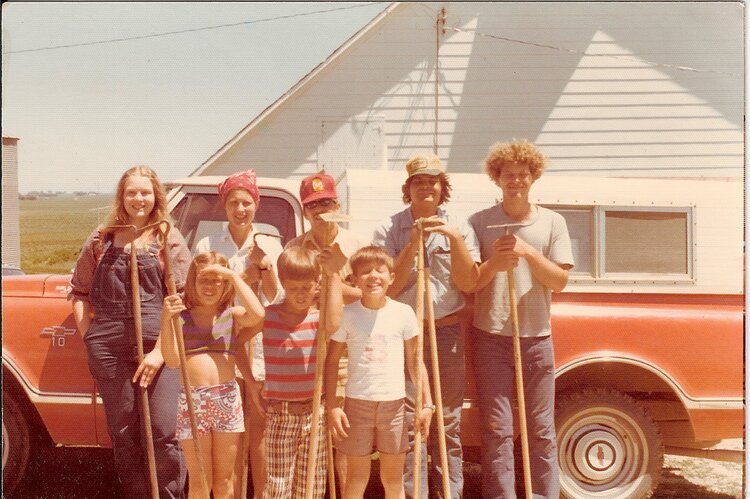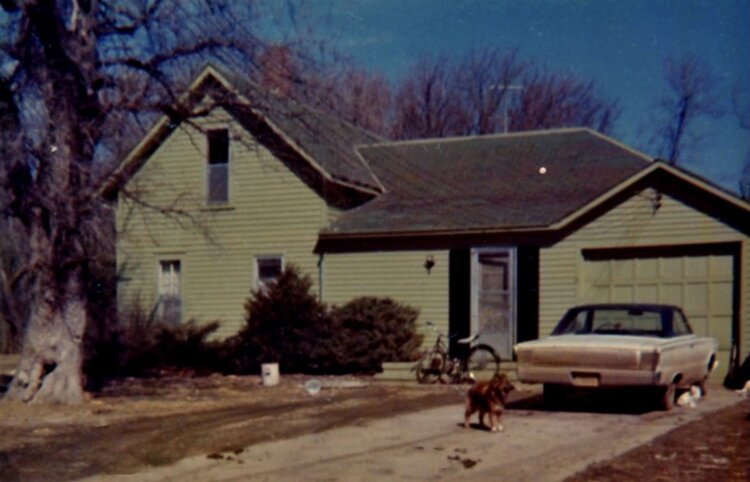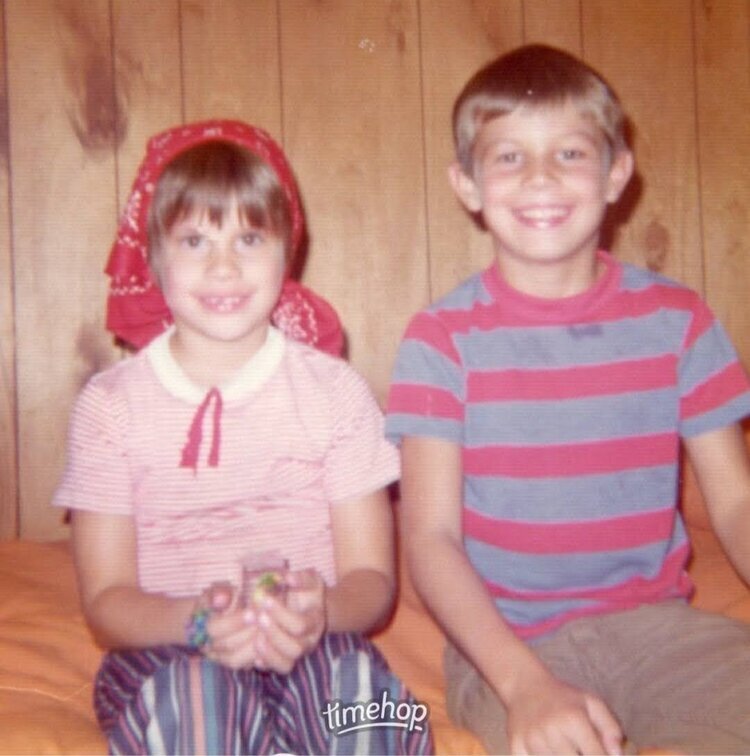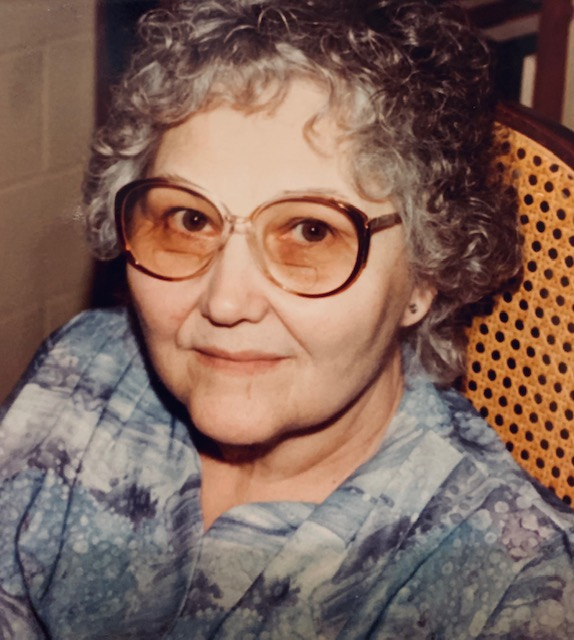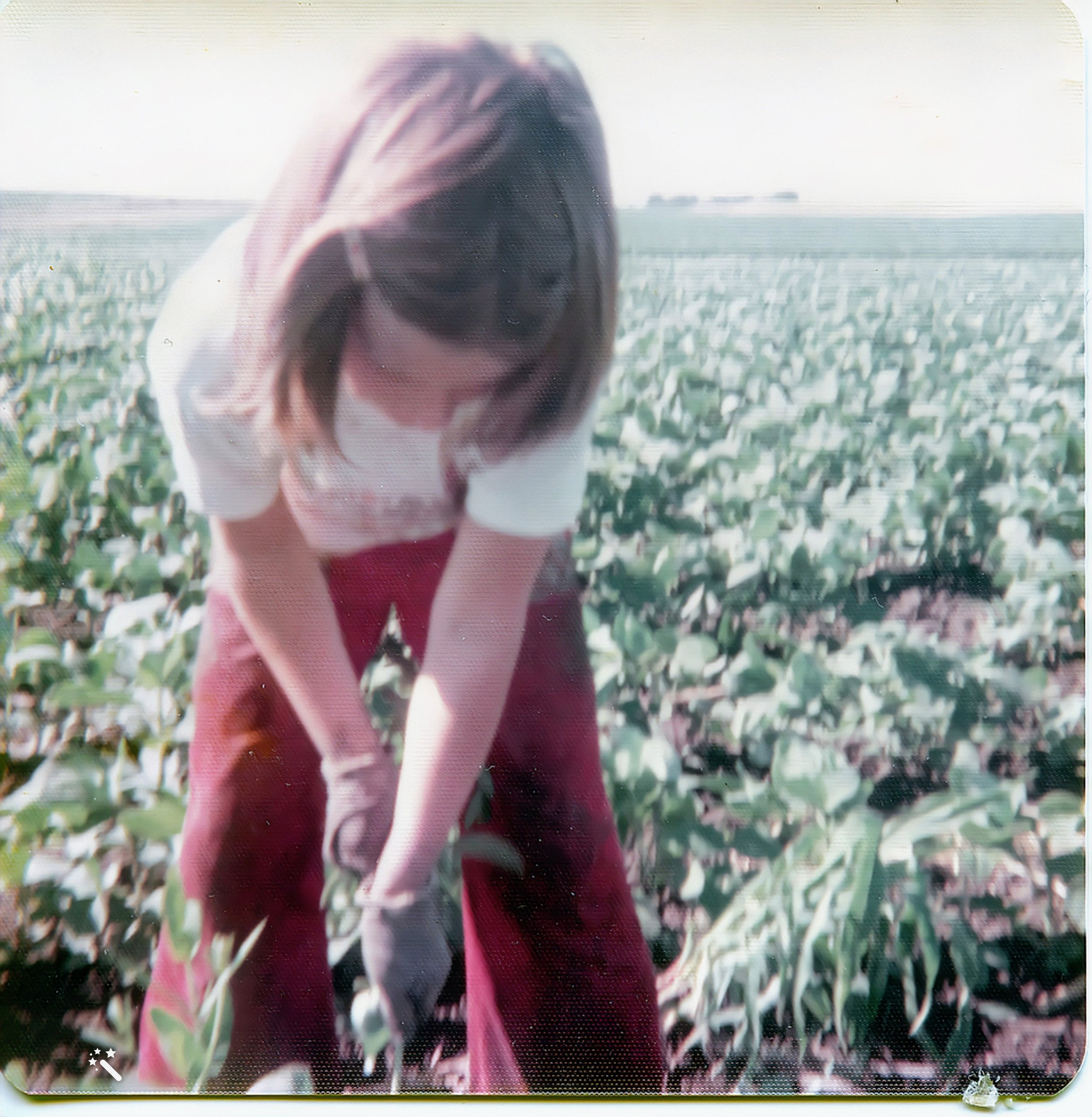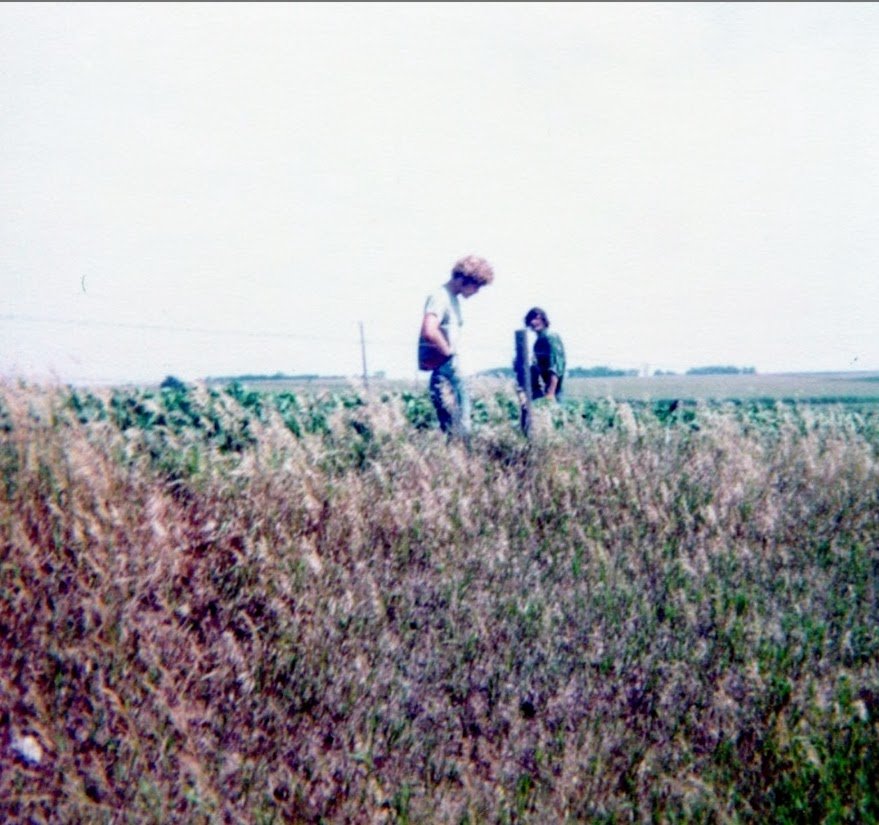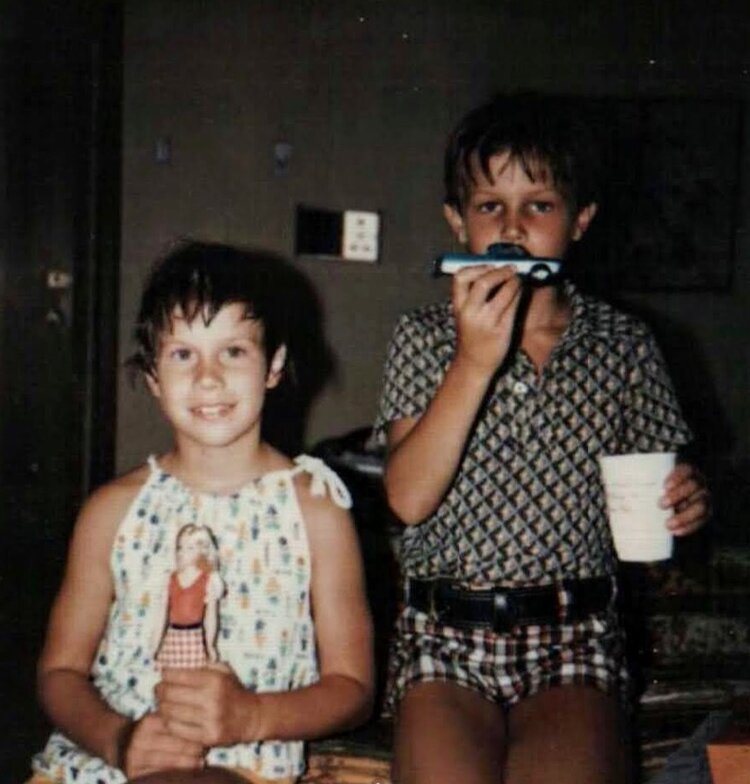Walking Through our Iowa Summers
As a child, I watched Grandma meticulously write my check in her careful cursive. With an amount in the hundreds, it took extra time for her to fill the line where the dollars were written. This was a rite of passage. Each childhood summer ended with Grandma writing me a check for my hard work on the farm.
June through August, my brothers and I spent our mornings and nights walking the bean fields on my grandparents' Iowa farm. Pulling weeds and chopping errant corn was part of our daily summer routine. This manual weeding method was later replaced by chemicals and machines. But in the 70s, flushing fields of weeds was the work of humans, typically school children. The only equipment provided were hoes and dirt-caked gloves.
Callouses were a given as we found the gloves a bother in the heat. Blisters developed with pain easing depending on the freshness of the wound. The transition from the softness of our school hands to those weathered was a just reminder of our hard work.
Our first rounds of bean walking would start at daybreak. Finishing just in time for lunch, we took shelter from the heat of the afternoon sun. In those hours before the evening rounds began, my brothers would help my uncles with farm chores in the barns. My afternoons were spent as my grandma’s assistant in the house.
Grandma’s main charge was the kitchen, planning and preparing meals for the farmhands. Fans were placed by windows and doors, running on high. Although the goal was to push the hot air out of the bustling kitchen, even the commercial-size fans weren’t enough to fend off the July heat and humidity.
I followed Grandma’s instructions on each chore with our work never fast nor rushed. A TV show or an interesting food dish on a magazine cover were distractions for Grandma and me. Flitting from one interesting task to another, slow precision and thoughtfulness were hallmarks of Grandma's being. Her sense of wonder exceeded her sense of urgency. My youthful curiosity kept me close by her side.
Grandma also oversaw the farm finances. This was an area she took on solo. The farmhouse had a little den that served as Grandma’s office. With layers of fresh dust covering stacks of untouched books, the stale smell of old paper filled the air. She would spend hours in this small space, working on paperwork that I never quite understood.
People were fed at mealtime and bills were paid timely with Grandma at the helm. Anything that happened in between was based on her prioritization that seemed to serve no logic. As a young girl, I appreciated the joy in Grandma’s spontaneity. We would spend hours reading through doll patterns found on a pile and then search through fabric piles for the perfect swatch for a desired doll dress to sew. I would spend hours organizing cans and boxes in the pantry using a color-coding system.
When guests were expected, we would hasten our cleaning pace after a procrastinated start. Eventually, a polished shine was brought to the farmhouse. My heavy breathing from our last-minute cleaning efforts was overshadowed by my perfectly coiffed grandma greeting her guests.
Our summer afternoons would pass in rhythm with the growing bean crop. Grandma and I would sip tea as we meandered through those hot summer days in the farmhouse.
Often excusing herself to work on 'the books', Grandma would hole up in her den for hours. Upon her departure, I would quietly go in and inspect the empty room. Wondering what happened in the den where I was not allowed, I would see new stacks of paper and the growing length of the adding machine tape. I was only allowed in Grandma’s den when she wrote my bean-walking check at the close of our summer.
Hours were logged until the bean crops were clean with all rows completely walked. In the final push to the finish, we would add afternoon rounds of bean walking. These long days were referred to as ‘three-a-days’. I loved walking the last rounds on these nights with its known end in the impending darkness.
I would carefully follow the progression of the sunset and estimate our field time remaining using my fingers as a gauge. Holding my tanned hand a few inches from my eye, I would measure the remaining gap between the ground and the sun. Happily, I would watch the light disappear between the edges of my blistered pinched fingers.
As the days grew shorter and the beans taller, our hours in the field were reduced. Once the job was complete, we were paid. After spending hours burrowed in her den, adding the ledgers of accumulated hours, Grandma would then prepare the checks. The other summer workers were handed their paychecks first. Next it was time for her grandchildren.
My brothers and I were allowed to go into her den to receive our pay. One by one, we were presented with our checks. As the youngest, I was the last to watch this annual check-writing ceremony.
Watching the adding machine hum along to the diligent movement of Grandma’s fingers, she would carefully rerun numbers to check her work. Her hand would then move from the adding machine to her big book of green two-part checks.
This exercise was exhilerating. I knew I would soon be in the money. With the close of summer also came an excitement of a new approaching school year and an annual end-of-summer shopping trip. Our parents allowed my brothers and me to buy one frivolous item with our bean-walking earnings. Choices varied from dolls to trucks and model airplanes. Whatever we indulged under $10, we could buy. The rest went into our savings accounts.
I watched Grandma's soft hands write my name on the check. Slowly she spelled out my full name in her perfect cursive. With the seemingly enormous amount owed to me, she would emphasize the crossing of each 't' and dotting of an 'i'. She played her role professionally as this was a business transaction, not to be taken lightly.
Beaming with excitement, I began envisioning my future purchase of a blonde Dusty Barbie Doll. I decided on this purchase after hours of thumbing through an outdated JC Penny Christmas catalog found on the farm living room floor.
With Grandma still writing my check, my thoughts wandered from spending my bean-walking money back to my carefree summer days spent on the farm. All my longing for summer to end subsided.
Already missing my afternoons with Grandma, she carefully ripped the check along its perforation, removing it from the checkbook. Payment for my hard work was presented to me with a warm smile.
I felt the finality of my summer close in on me as I reviewed my well-earned check. Boldly written on the notation line in her perfectly capitalized lettering was “PAID IN FULL”.

